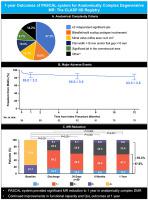违反停火协议:为什么会发生以及它们与战略决策过程的关系
IF 3.1
1区 社会学
Q1 INTERNATIONAL RELATIONS
引用次数: 1
摘要
几乎所有停火都遭到违反,但我们对这种违反与冲突各方的军事和政治愿望有何关系知之甚少。本文建立在停火和谈判文献的基础上,以理解为什么会发生违反停火的情况,以及它们与战略决策过程的关系。在这些理论见解的基础上,本文提出了四种主要类型的违反停火行为:战略违反旨在加强冲突一方的军事优势,报复性违反旨在确保遵守停火,破坏性违反旨在破坏领导人的努力,以及局部违反与战略决策过程脱节。对邦萨摩罗和平进程中一次重大违反停火事件的案例研究表明,我们可以利用非正式贝叶斯推理从经验上区分这些不同类型的违反行为。将违反停火行为视为更广泛的军事和政治进程的一部分,使我们能够更好地了解发生违反停火行为的因果条件,并确定不同行为体实施这些违反行为的战略利益。这有助于解释对违反停火的各种反应,并加深我们对如何解决这些问题的理解。本文章由计算机程序翻译,如有差异,请以英文原文为准。

Ceasefire Violations: Why They Occur and How They Relate to Strategic Decision-Making Processes
Almost all ceasefires experience violations, yet we know little about how such violations relate to the military and political aspirations of conflict parties. This article builds on ceasefire and bargaining literature to understand why ceasefire violations occur and how they relate to strategic decision-making processes. Building on these theoretical insights, it proposes a typology of four main types of ceasefire violations: strategic violations serve to strengthen the military advantage of a conflict party, retaliatory violations seek to ensure ceasefire compliance, spoiling violations aim to undermine the efforts of leaders, and localized violations are delinked from strategic decision-making processes. A case study of a major ceasefire violation in the Bangsamoro peace process illustrates how we may use informal Bayesian reasoning to empirically distinguish between these different types of violations. Treating ceasefire violations as part of wider military and political processes enables us to better understand the causal conditions under which ceasefire violations occur and identify strategic interests of different actors to carry out these violations. This helps explain the varied responses to ceasefire violations and sharpens our understanding of how to address them.
求助全文
通过发布文献求助,成功后即可免费获取论文全文。
去求助
来源期刊

International Studies Review
Multiple-
CiteScore
6.70
自引率
9.10%
发文量
62
期刊介绍:
The International Studies Review (ISR) provides a window on current trends and research in international studies worldwide. Published four times a year, ISR is intended to help: (a) scholars engage in the kind of dialogue and debate that will shape the field of international studies in the future, (b) graduate and undergraduate students understand major issues in international studies and identify promising opportunities for research, and (c) educators keep up with new ideas and research. To achieve these objectives, ISR includes analytical essays, reviews of new books, and a forum in each issue. Essays integrate scholarship, clarify debates, provide new perspectives on research, identify new directions for the field, and present insights into scholarship in various parts of the world.
 求助内容:
求助内容: 应助结果提醒方式:
应助结果提醒方式:


